About us
about search and developed it towards personalization
Founded in Stockholm
Findify was founded in Stockholm in 2014 by the four entrepreneurs Meni Morim, Jaclyne Clarke, Thomas Fattal & Thibaut Patel. The common denominators were Klarna & KTH where the team had a broad experience of e-commerce, machine learning, system architecture & UX.
They realized that e-retailers invested large resources in attracting customers to the stores, but that customers there had a hard time finding products that were relevant to them. Customers became frustrated and quickly disappeared.

First product development in search
The first thing Findify developed was a search engine fully adapted for e-commerce. By reading all the information related to the products, evaluating information differently depending on where it is presented and building a specialized infrastructure, you could present relevant products in a flash.
In addition, they expanded a plethora of features to make the experience smoother for customers, such as Spelling Correction, Tokenization (all words are converted to its basic form), incomplete matching (results for parts of the search term), Natural Language Processing (different words in a sentence have different roles and should be treated accordingly) and self-learning (to constantly improve).
To make everyday life easier for merchants, functions were also created for managing synonyms, merchandising (manual influence of the results) and page redirect (that the customer comes to a dedicated page when they search for eg shipping options).
The entire service was packaged in a ready-made UX, ready to be implemented without the need for development.
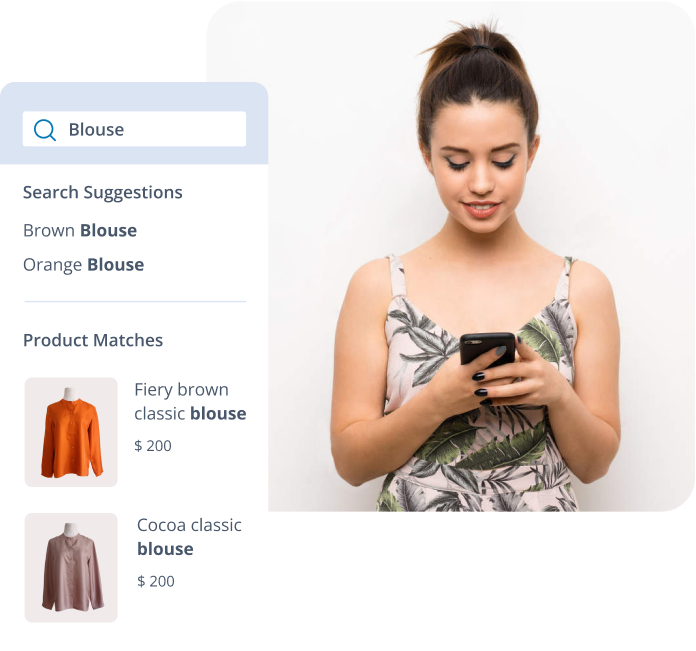
Personalization to increase relevance
Unlike google, however, the range in most stores is still presented statically. Everyone sees the products in the same order, which means that a majority is not allowed to see the products that are most relevant to them. To solve this, Findify launched in January 2017 a dynamic presentation of the products based on the customer’s behavior in the store. The algorithm reads how each customer moves in the store, what products they engage in and buy, and what dimensions behind the products drive that behavior. Each user thus sees the order of the products that are most relevant to them personally. The algorithms have been continuously refined since launch, but a constant basis has been to never read in sensitive data about the individual. The customer’s behavior is more powerful in anticipating which products are most relevant to them, and thus Findify has been able to continue to guarantee each visitor that they are completely anonymous. Read more about how personalization is structured: Findify.io/findify-insights.html
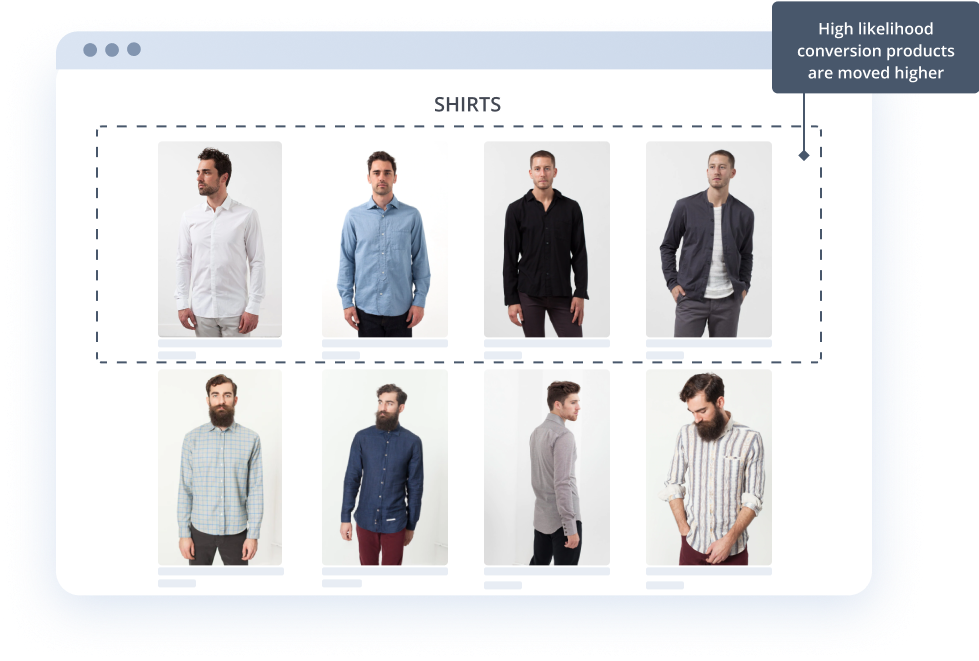
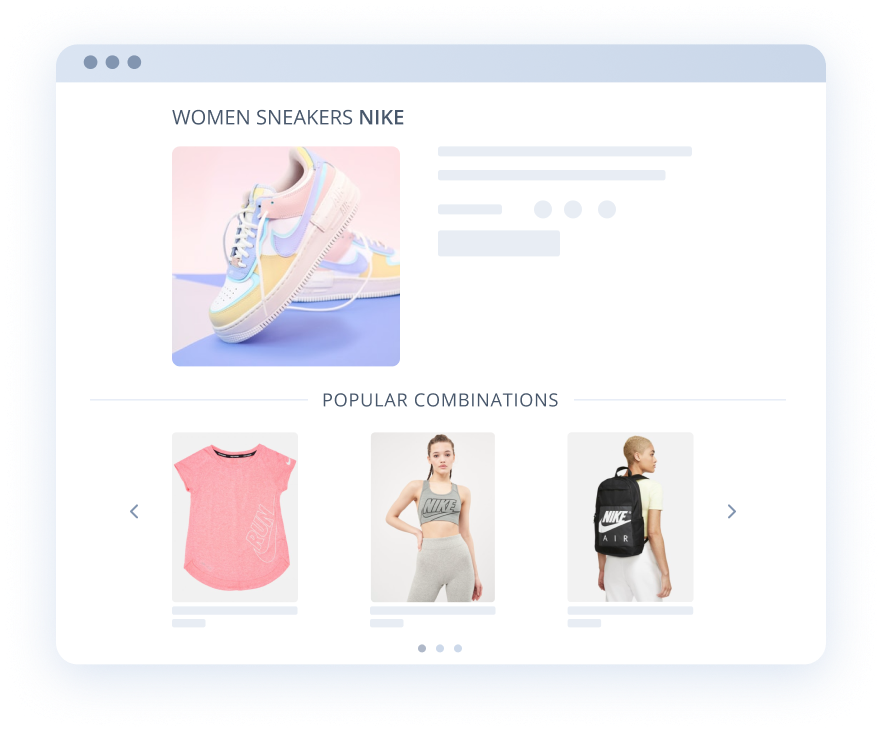
Findify’s recommended products
More services to cover the entire store
After the launch of personalized search with individual rankings, customers requested to be able to use the same functionality in more areas of the stores. That is why Smart Collections & Recommendations was launched. Smart collections makes it possible to apply the same UX and ranking as for the search result on collection pages / category pages. Recommendations drive sales and additional sales by displaying selected products on any page such as the start page, product page or checkout. The customer can define which types of products are to be displayed, such as complementary products in an outfit, relevant alternatives of the same category, bestsellers, what other customers have been interested in or products the customer has previously been interested in.
Findify today
Findify is still operated from the head office in Stockholm with about 20 employees in Sweden and around Europe. The service has today been installed on over 1800 e-retailers globally. A majority of customers are in North America, followed by the United Kingdom, the Nordic countries and Australia.
The business has developed strongly in recent years and has a number of high-profile customers such as Swedish Happy Socks, Gina Tricot, Apohem, Odd Molly and Mateus.
The
Victoria Beckham, Draper James (Reese Witherspon’s clothing store), Billionaire Boys Club (Pharrell Williams’ clothing and ice cream line), Good American (co-founded by Khloe Kardashian), Everlast and many more stand out internationally.
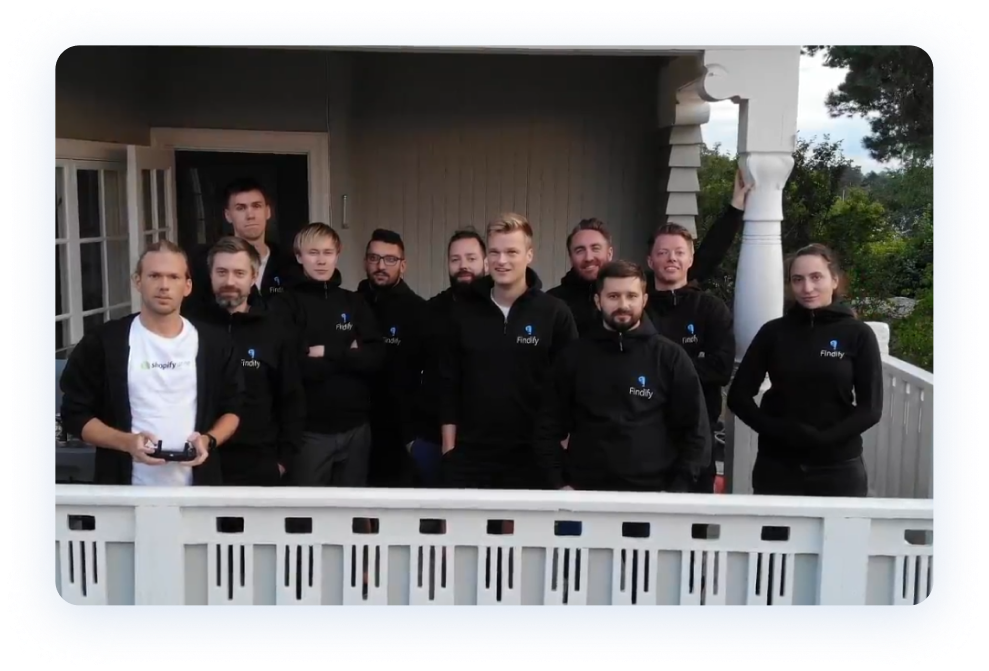
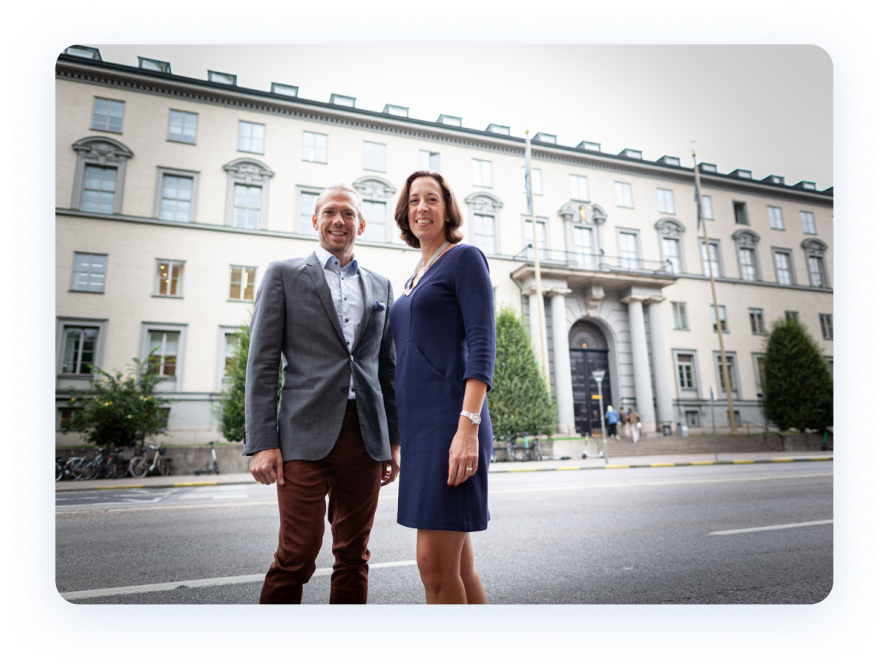
The next step of the development
In September 2020, Findify launched a collaboration with the Stockholm School of Economics. The aim is to develop the next generation of artificial intelligence by training the algorithms with insights from behavioral economics. The initiative is led by Nurit Nobel, a researcher at the School of Business, and Joakim Amadeus Olsson, Chief Commercial Officer at Findify. The work includes all steps from idea generation to implementation in the algorithm and robust tests.
Read more: Findify.io/findify-blog.html

The next step of the development
In September 2020, Findify launched a collaboration with the Stockholm School of Economics. The aim is to develop the next generation of artificial intelligence by training the algorithms with insights from behavioral economics. The initiative is led by Nurit Nobel, a researcher at the School of Business, and Joakim Amadeus Olsson, Chief Commercial Officer at Findify. The work includes all steps from idea generation to implementation in the algorithm and robust tests.
Read more: Findify.io/findify-blog.html

